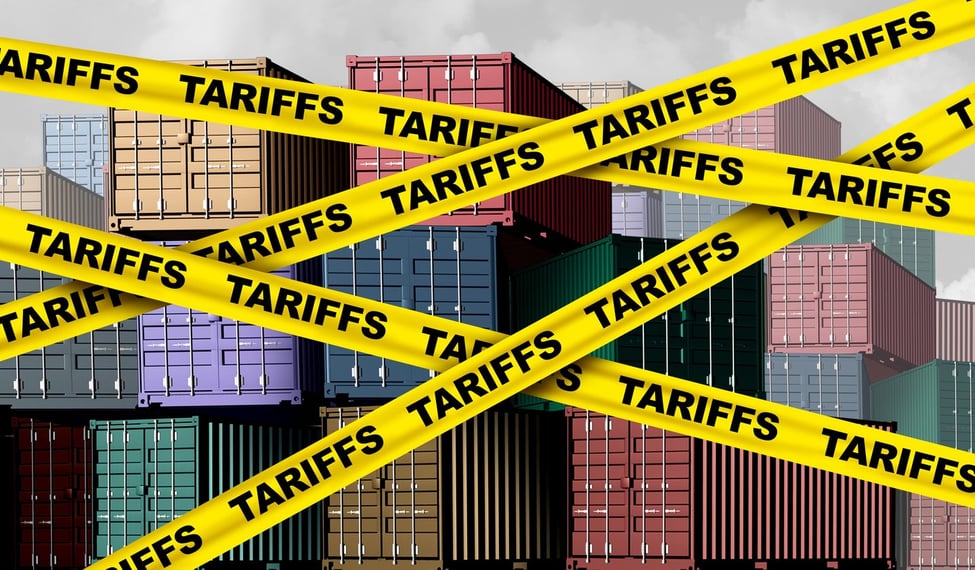How Consumers Can Protect Themselves from Rising Living Costs Due to Tariffs
With the rising cost of goods and services driven by tariffs, many consumers are feeling the financial strain—especially in cities like Toronto, where the cost of living is already high. Tariffs on building materials, household goods, and everyday essentials can increase prices across the board, making it more expensive to own a home, rent an apartment, or even maintain a basic lifestyle.
So, how can consumers safeguard themselves against these rising costs? Here are some practical strategies to help navigate this economic challenge.
1. Reduce Housing-Related Costs
With tariffs driving up the price of construction materials, real estate prices and rental costs may continue to rise. Homeowners and renters alike should explore ways to reduce their housing expenses:
For Homeowners:
- Lock in a fixed-rate mortgage: If you haven’t already, consider refinancing or securing a fixed-rate mortgage to protect against potential interest rate hikes.
- Increase energy efficiency: Rising material costs could also mean higher renovation costs in the future. Investing in energy-efficient appliances and home improvements now can help reduce long-term utility bills.
- Explore alternative materials for renovations: If you’re planning home improvements, look for cost-effective alternatives to tariff-affected materials like steel and lumber.
For Renters:
- Negotiate your lease renewal: With market fluctuations, landlords may be open to negotiating more favorable lease terms rather than risk a vacancy.
- Consider co-living or shared housing: Splitting rent and utility costs with a roommate or housemate can help offset increasing living expenses.
2. Cut Back on Discretionary Spending
As costs for essentials rise, it’s wise to reassess non-essential expenses to maintain financial stability. Consider the following:
- Review your subscription services: Streaming platforms, gym memberships, and other monthly subscriptions can add up. Cancel any that you don’t use regularly.
- Eat out less often: Dining out and takeout can quickly drain your budget. Cooking at home and meal prepping can lead to significant savings.
- Shop smart: Look for discounts, use cashback apps, and buy in bulk when possible to lower grocery and household expenses.
3. Strengthen Your Emergency Fund
An emergency fund can provide financial security in uncertain economic conditions. If tariffs continue to drive up costs, having savings set aside can help you absorb the impact.
- Aim for 3-6 months of living expenses: This can provide a safety net in case of job instability or unexpected price hikes.
- Automate your savings: Set up automatic transfers to a high-yield savings account to build your emergency fund consistently.
4. Diversify Your Income Sources
If your salary is struggling to keep up with rising costs, consider finding additional income streams:
- Freelancing or gig work: Platforms like Upwork, Fiverr, or ride-sharing apps can offer extra income opportunities.
- Invest in passive income sources: Consider dividend stocks, rental properties, or side businesses that can generate income with minimal ongoing effort.
- Upgrade your skills: Take advantage of free or low-cost online courses to improve your job prospects and increase your earning potential.
5. Stay Informed and Adapt
Understanding how tariffs and economic policies affect your expenses can help you make smarter financial decisions:
- Follow economic news: Keep an eye on updates regarding tariffs, housing trends, and inflation to anticipate changes in the market.
- Seek professional advice: If you're struggling with rising costs, consider consulting a financial advisor to optimize your budgeting and investment strategy.
- Advocate for policy changes: Support local initiatives and government programs aimed at reducing the cost of living and increasing affordable housing options.
Final Thoughts
Rising living costs due to tariffs can be challenging, but by taking proactive steps, consumers can protect themselves and maintain financial stability. Whether it’s adjusting spending habits, securing stable housing options, or increasing income streams, planning ahead is key to staying ahead of economic pressures.
Are you looking for specific savings tips or budget-friendly solutions in Toronto? Let me know, and I can tailor advice to your needs!

